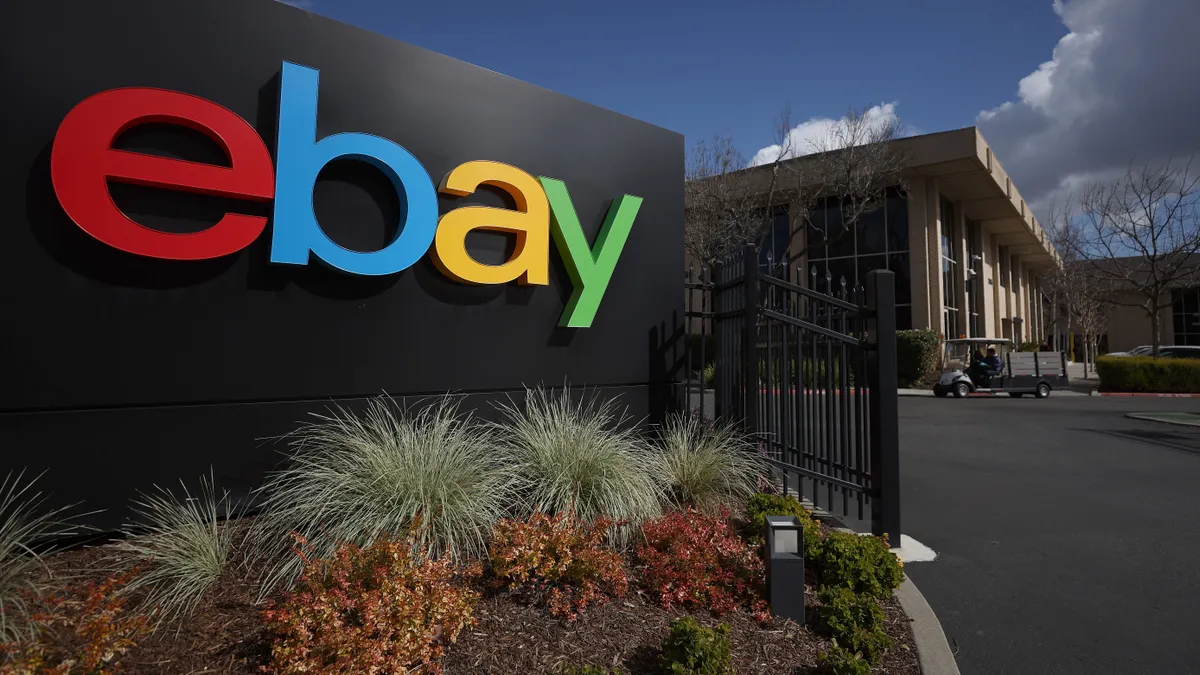Amazon backed off a threat to stop accepting Visa credit cards that originate in the U.K., easing tensions that had mounted last year as the e-commerce giant protested the card network's fees around the world.
Based on statements from Amazon and Visa in recent days, the two companies appear to be nearing a new agreement on the fees to be imposed when consumers use their Visa cards to buy goods on the massive online marketplace.
"The expected change regarding the use of Visa credit cards on Amazon.co.uk will no longer take place on January 19," an Amazon spokesperson said Monday in an emailed statement. "We are working closely with Visa on a potential solution that will enable customers to continue using their Visa credit cards on Amazon.co.uk."
Amazon had set the Jan. 19 deadline on the use of U.K.-issued Visa credit cards in November to draw attention to what it claimed were the card company's overly high interchange "swipe" fees charged for processing transactions. That move followed surcharges Amazon imposed on Visa transactions in Australia and Singapore last year, also in protest of the card network's fees.
Visa also struck a conciliatory tone. "Amazon customers can continue to use Visa cards on Amazon.co.uk after January 19 while we work closely together to reach an agreement," according to an emailed statement from a Visa spokesman on Monday.
Details of the talks, including what issues remain outstanding and when they expect to reach an agreement, weren't disclosed in the statements issued on the Martin Luther King Jr. holiday.
The companies also omitted any mention of the fate of a co-branding agreement between Visa and Amazon. Seattle-based Amazon was reportedly considering replacing Visa with its smaller rival Mastercard.
According to analyst Kenneth Suchoski of Autonomous Research, San Francisco-based Visa may offer to lower its price, offer more rebates and services or add other "value-added services."
At issue in the dispute are interchange "swipe" fees that merchants pay to card-issuing banks every time a consumer uses a credit or a debit card. The fees have been controversial for years, with a cap imposed on debit card fees as part of the 2010 Dodd-Frank Wall Street Reform and Consumer Protection Act. The two sides continue to be at odds over the law's restrictions.
Card networks levy higher fees on online purchases because they claim they are more vulnerable to fraud, an argument rejected by merchants, according to The Wall Street Journal.
Retailers have long claimed the fees are inflated, and some filed a lawsuit against card companies and banks for allegedly imposing rules that insulated the issuers and card companies "from competitive pressure" in setting fees.
"The cost of accepting card payments continues to be an obstacle for businesses striving to provide the best prices for customers," according to a 2021 Amazon statement. "These costs should be going down over time with technological advancements, but instead they continue to stay high or even rise."
Merchants paid $53.6 billion in Visa and Mastercard interchange fees in 2019, more than double what they collected seven years earlier, according to data from the industry research firm Nilson Report, per The Wall Street Journal.
Amazon imposed surcharges on Visa credit transactions in Singapore and Australia to cover the costs of interchange fees. Wall Street analysts argued that Amazon's spat with Visa was a negotiating tactic to win financial concessions from Visa.
Even so, taking a hard line in the U.K. isn't without risk for Amazon because the online retailer could alienate customers in its third-largest market.
In an analyst report Monday, analysts at the financial services firm Robert W. Baird said Amazon may have been using the argument "as a potential bargaining tactic to lower Visa's fees," but also noted that the "risk of rejecting Visa credit was probably biggest to Amazon." The analysts estimated the United Kingdom contributes only about 4% to 6% of Visa's revenue, with Amazon "a reasonably small subset of that."
The banks that issue the cards would have likely suffered a bigger impact than Visa, as consumers shifted their spending to lower-fee debit cards, the Baird analysts said in the report.
"They're gonna run into a lot more carts being abandoned," Baird analyst David Koning said in a November interview. The move might lower Amazon's costs 0.2%, but if one in 500 consumers opts for another merchant, Amazon may "end up losing money on an idea like this," Koning said.
Amazon's moves could also create potential drawbacks for Visa's card rivals, such as Mastercard and Discover Financial, which similarly depend on interchange fees for revenue. Still, there's also the potential upside if Amazon shifts business to one of them.
The Amazon-Visa row could also advantage Visa's non-card rivals. PayPal signed an agreement with Amazon last year to allow the use of its peer-to-peer payments product, Venmo, on the e-commerce site.






















